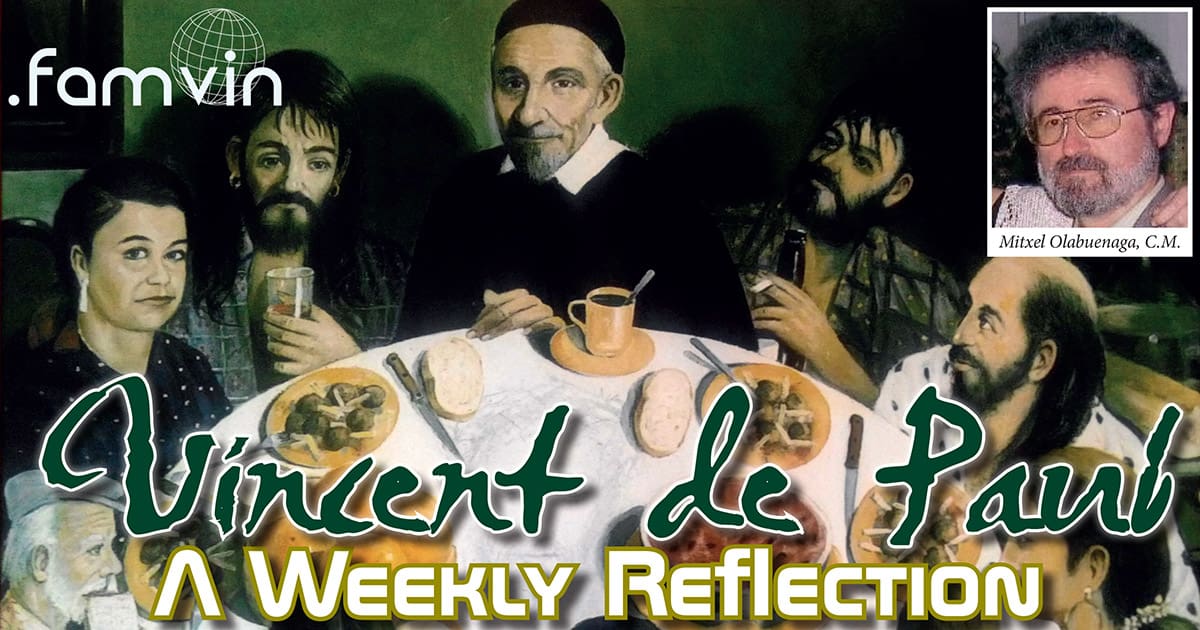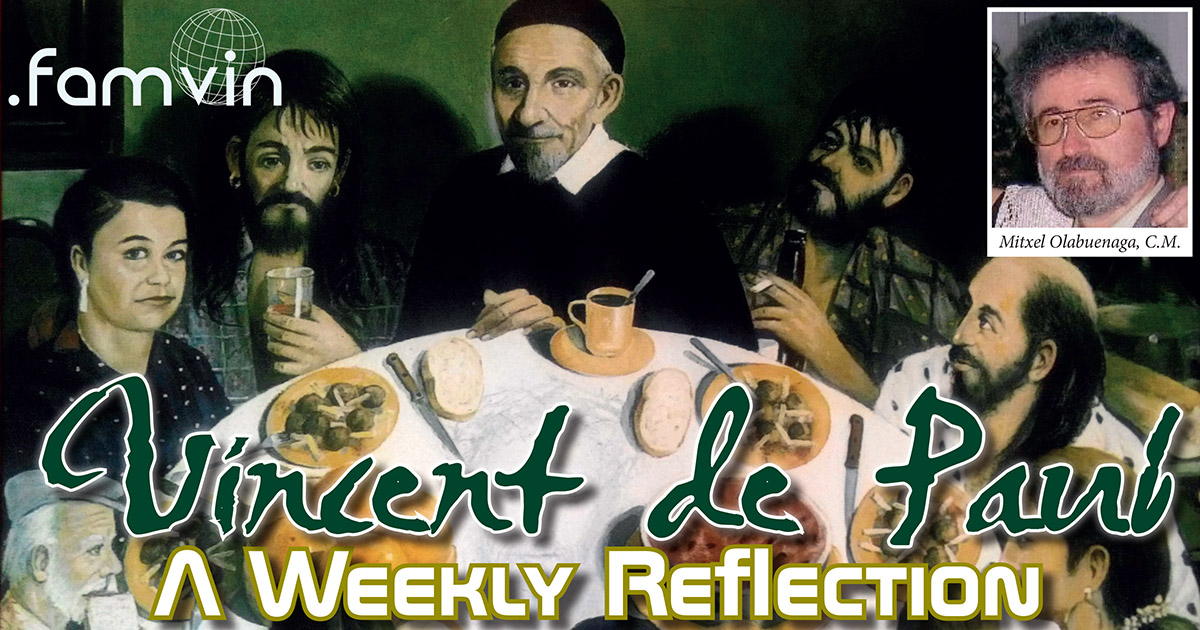None Lower Than the Lord • A Weekly reflection with Vincent
“You know that Our Lord willed to be tried by all kinds of misery. ‘We have a High Priest,’ says Saint Paul, ‘who knows how to sympathize with our weaknesses because He has experienced them himself.’ (Hebrews 4:15) Yes, O Eternal Wisdom, You willed to experience and take upon Your innocent person all our poverty! You know, Messieurs, that He did that to sanctify all the sufferings to which we’re subject and to be the original and prototype of all the states and conditions of human persons.”
Vincent de Paul, CDC XI, 13.
Reflection:
- One of the common theses of Mr. Vincent is to consider Jesus Christ “to be the original and prototype of all the states and conditions of human persons”. It can not be otherwise … “Let us study Jesus Christ” … “Let us practice what the Son of God did” … are other similar, well known expressions. The addition of “all states and conditions” to this phrase is no less important: because the affirmation goes far beyond the “sacerdotal state” or “religious condition”; even goes beyond the “believer.” … Vincent was far ahead of his time!
- The above thesis is not just “in principle” but in fact; because to be this way, Jesus Christ “experienced all human miseries”, “became human”; because Mr. Vincent likes the “horizontal dimension”, the “walk next to” (neither front nor behind). And being a “partner on the road” implies knowing the pace of each traveler or, as the text says, “experiencing all human miseries.” A rereading of the “Emmaus walkers” is always encouraging.
- What is the end result of to “clothe yourselves with Jesus Christ (Rom 13:14)”? To complain when we discover our miseries? To cast the miseries on Jesus Christ and to send him to the desert like propitiatory victim? The answer is no.It is a question of converting these poverties (threats) into sanctities (opportunities). From the recognition of our weaknesses must arise (accompanied by Jesus Christ) the opportunity to improve on the path of perfection. We are in it!
- The conclusion of the approach is simple: we must identify with Jesus Christ to become ourselves. Identify ourselves with a person who not only knows us by name, but lives our miseries. Perhaps the poet is right to reflect on this thought when he writes: “I have sought God and I have not found him; I have looked for myself and I have not found myself; I have sought a poor man and I have found myself and God.” Is there more misery than being poor?
Questions for dialogue:
- Do I let myself be accompanied on the path of my discovery?
- Is my community a sign of availability to accompany others?
- Do we take advantage of “miseries” to discover “opportunities”?
- From the poor to Jesus Christ or from Jesus Christ to the poor? Is it a vicious circle, or something more?
Mitxel Olabuenaga, C.M.
Tags:








0 Comments